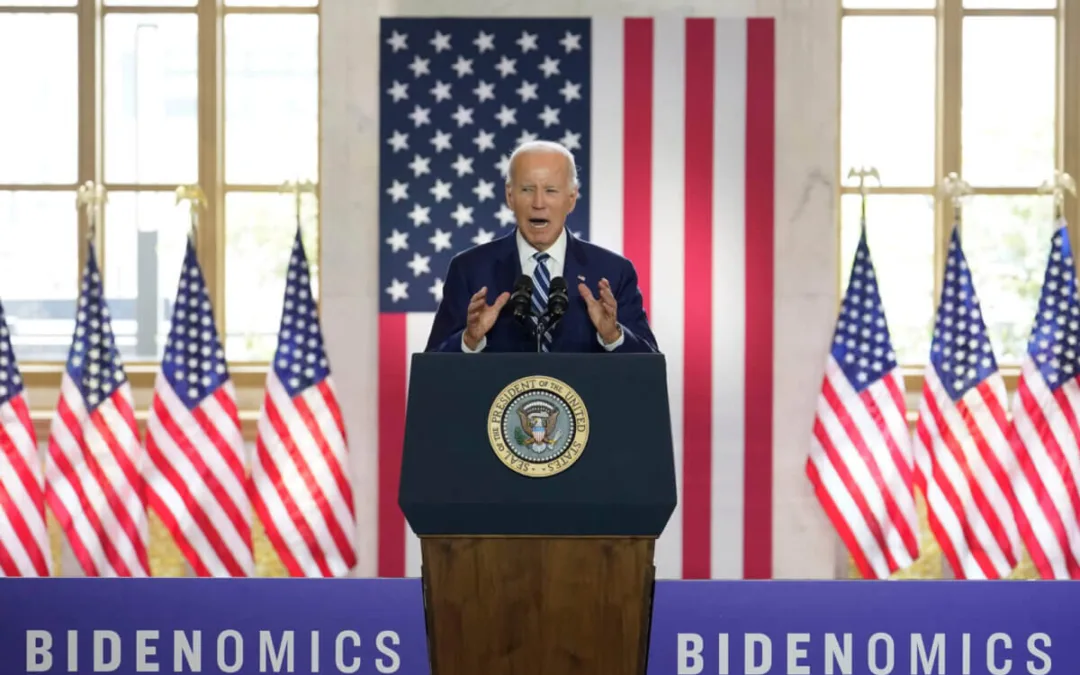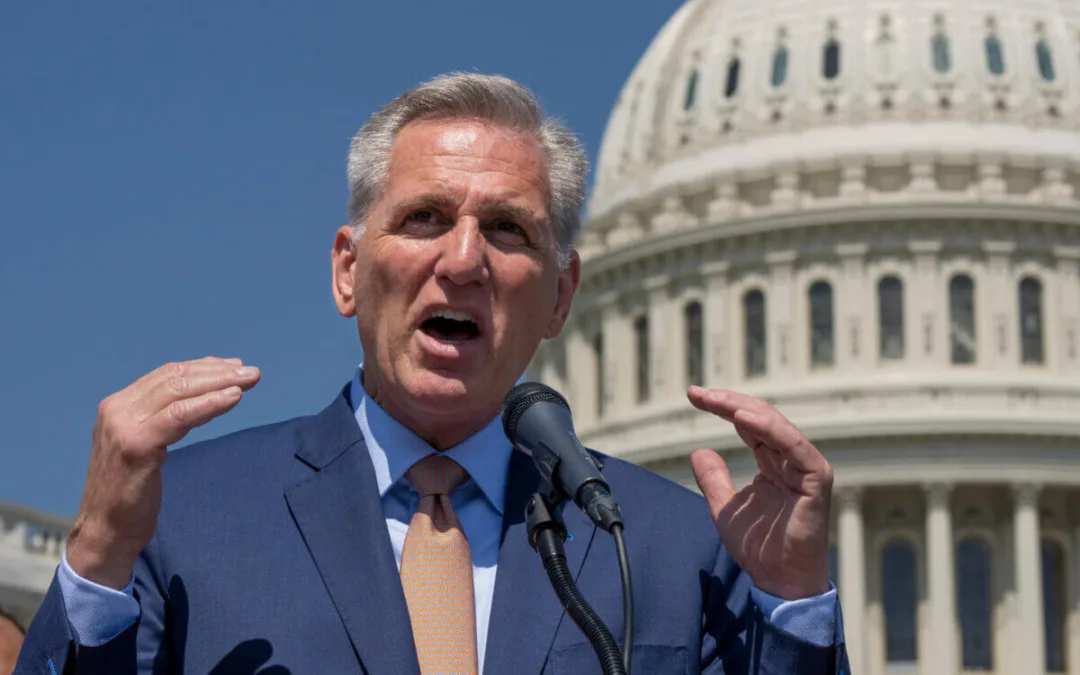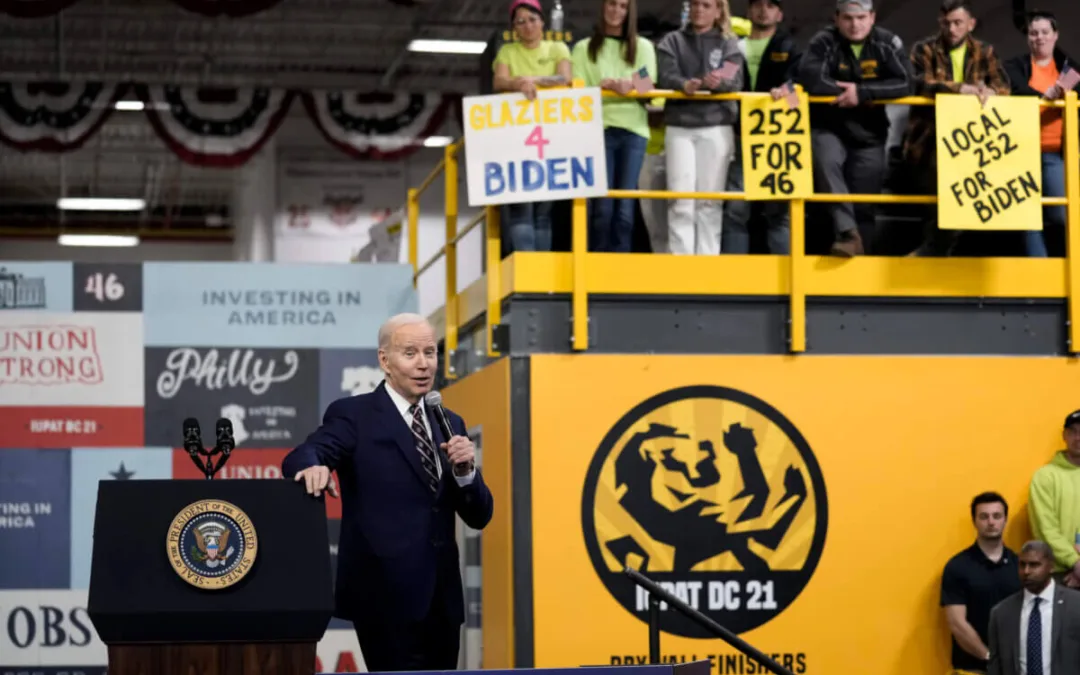
FILE - UPS teamsters and workers hold a rally, Friday, July 21, 2023, in Atlanta, as a national strike deadline nears. UPS has reached a contract agreement with its 340,000-person strong union Tuesday, July 25, 2023, averting a strike that had the potential to disrupt logistics nationwide for businesses and households alike. (AP Photo/Brynn Anderson, File)
The tentative deal represents a huge win for full- and part-time UPS Teamster workers, who would get significant pay raises and better working conditions.
The labor union representing 340,000 UPS workers announced it reached a tentative contract agreement with the shipping and logistics company on Tuesday, potentially averting a strike that could have begun as early as next week.
The Teamsters announced the deal late Tuesday morning, just hours after the two sides resumed negotiations. The company had already agreed to many of the union’s demands on higher pay for drivers, better working conditions, and ending a two-tier wage system, but had resisted boosting pay for part-time workers.
The details of the tentative five-year agreement suggest that the union ultimately got what it asked for, obtaining significant raises for part-time workers.
“Rank-and-file UPS Teamsters sacrificed everything to get this country through a pandemic and enabled UPS to reap record-setting profits. Teamster labor moves America. The union went into this fight committed to winning for our members. We demanded the best contract in the history of UPS, and we got it,” Teamsters General President Sean O’Brien said in a statement.
“UPS has put $30 billion in new money on the table as a direct result of these negotiations. We’ve changed the game, battling it out day and night to make sure our members won an agreement that pays strong wages, rewards their labor, and doesn’t require a single concession. This contract sets a new standard in the labor movement and raises the bar for all workers,” O’Brien added.
UPS earned record profits of $11.3 billion last year, and the company’s profits have grown more than 140% since the union’s last contract was signed in 2018.
Here are some of the details of the tentative deal:
- Existing full- and part-time UPS Teamsters will get $2.75 more per hour in 2023, and $7.50 more per hour over the length of the contract.
- Existing part-time workers will see their wages increased to no less than $21 per hour immediately, and will receive a 48% average total wage increase over the next five years. They will also get “longevity wage increases” of up to $1.50 per hour.
- New part-time hires at UPS would start at $21 per hour and advance to $23 per hour.
- Full-time workers will see the average top rate of pay rise to $49 per hour.
- UPS agrees to eliminate its unfair two-tier wage system that allowed the company to pay some workers less than others for the same work.
- All vehicles purchased beginning in 2024 will have air conditioning; currently, many workers toil away in extreme heat without access to A/C, and some have even fallen seriously ill or died as a result.
- No more forced overtime on Teamster drivers’ days off.
- The creation of 7,500 new full-time Teamster jobs at UPS and the fulfillment of 22,500 open positions.
The deal still needs to be approved by rank-and-file union workers. Member voting begins August 3 and concludes August 22.
If approved, the deal will avert a strike that could have been one of the “costliest in US history,” according to an estimate from Michigan economic research firm, Anderson Economic Group.
UPS also celebrated the deal in a statement on Tuesday.
“Together we reached a win-win-win agreement on the issues that are important to Teamsters leadership, our employees and to UPS and our customers,” said Carol Tomé, UPS chief executive officer, in the statement. “This agreement continues to reward UPS’s full- and part-time employees with industry-leading pay and benefits while retaining the flexibility we need to stay competitive, serve our customers and keep our business strong.”
Politics

One Republican Senator Is Blocking 265 Military Promotions, Leaving the Marines Without a Confirmed Leader
Sen. Tommy Tuberville's decision means these military officers are not getting the pay raises they’re owed, cannot move their families to wherever...



What ‘Bidenomics’ Means for Workers and Families
US Department of Labor Chief Economist Joelle Gamble explains what "Bidenomics" means and how the president's investments are helping workers and...
Local News



One Republican Senator Is Blocking 265 Military Promotions, Leaving the Marines Without a Confirmed Leader
Sen. Tommy Tuberville's decision means these military officers are not getting the pay raises they’re owed, cannot move their families to wherever...



What ‘Bidenomics’ Means for Workers and Families
US Department of Labor Chief Economist Joelle Gamble explains what "Bidenomics" means and how the president's investments are helping workers and...




